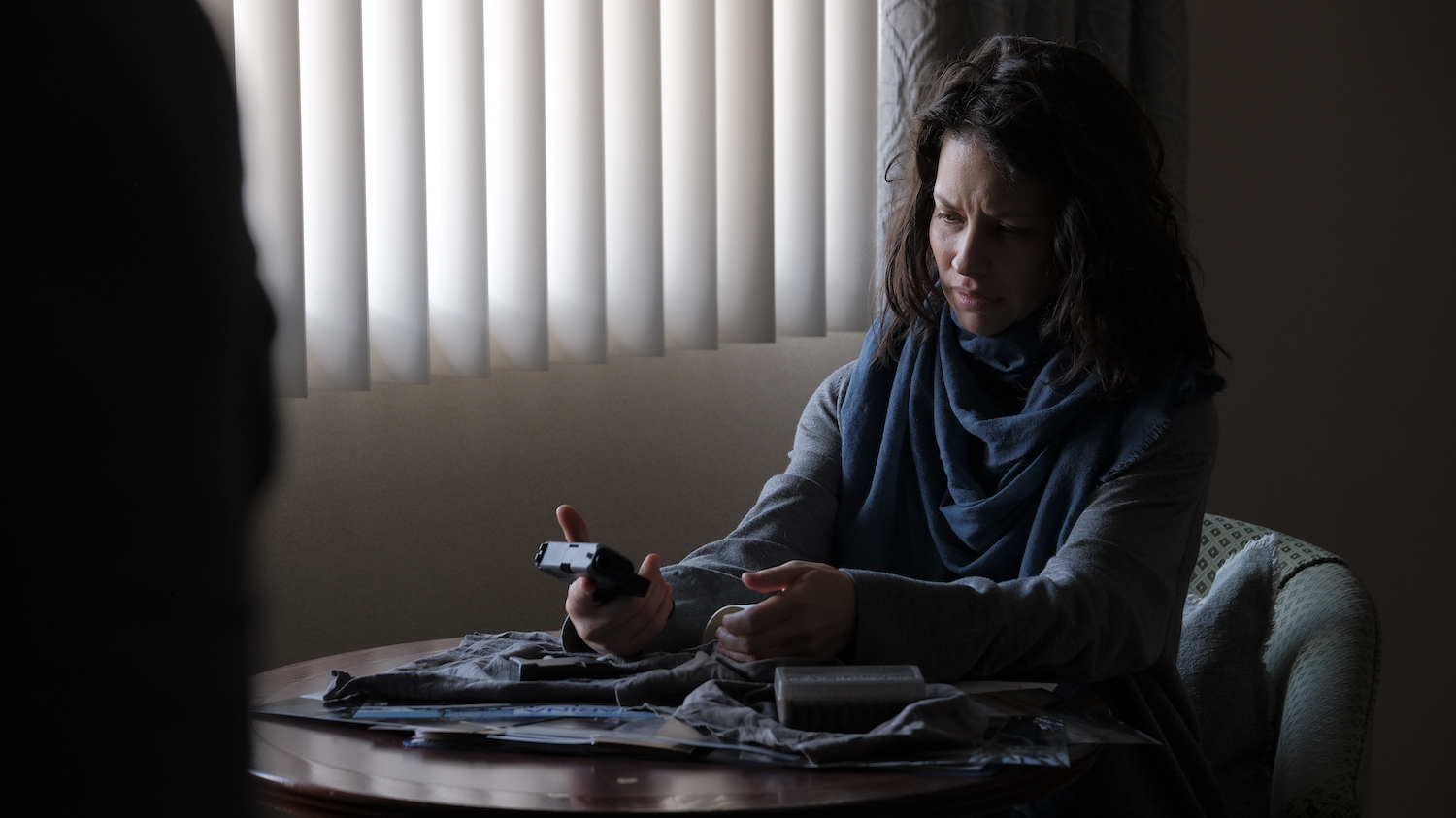What to Watch Verdict
Eugene Jarecki weaves a compelling tapestry of stories to explore the reach of the opioid crisis, but the subject matter's unfortunate flatness may leave audiences deflated.
Pros
- +
💊 Oldman delivers a suitably complex performance as a man trying to bring the truth to light a tremendous cost.
- +
💊 Jarecki juggles the different stories in his film with skill and verve, even if they don't all come together.
Cons
- -
💊 Each of these single stories could have been a film unto themselves, and Jarecki's overlap undercuts some of their individual weight.
- -
💊 Too many unlikely coincidences strain believability even when the stories themselves are compelling.
Watching Crisis, you start to understand why the opioid crisis has gone so criminally ignored by the public at large, much less regulatory and law enforcement agencies: there’s nothing sexy about it at all. Certainly in comparison to other drug trafficking operations and their perpetrators chronicled on television and in film, watching a kid cross the Canadian border with a backpack full of pills isn’t very exciting. But projected against the backdrop of this “invisible” epidemic, writer-director Nicholas Jarecki aims to tell his very own Traffic by exploring the way that the pharmaceutical industry has become a legitimate face overshadowing what has become a cutthroat, lucrative and most of all destructive criminal enterprise. Earnest, predictably urgent performances by Gary Oldman, Armie Hammer and Evangeline Lilly help the audience navigate through just three arenas of this crisis — in boardrooms, the streets and suburban neighborhoods — while Jarecki creates a latticework that’s suitably complex but nevertheless doesn’t fully connect the dots between them.
Hammer plays Jake Kelly, an undercover federal agent trying to broker a multi-million-dollar deal for Fentanyl between his Armenian partners and a mysterious Canadian supplier named “Mother.” Meanwhile, Lilly plays Claire Reimann, a recovering Oxycodone addict whose son dies under mysterious circumstances, prompting her to investigate what happened after the police label it accidental. And Oldman plays Tyrone Brower, a university professor who finds himself battling the pharmaceutical giant that provides his research funding after a test of one of their new, supposedly non-addictive pain killers produces some alarming results.
The ways that Jake, Claire and Tyrone seek justice — for themselves, their colleagues and loved ones, and for the public — could probably each merit its own film, which may be why the intersections are sometimes surprising, and others nonexistent. Oldman’s whistleblower story, captivating as it is, only relates to the others in as far as it’s also about opioids, and an improbable “vigilante justice” scenario creates a specious overlap for Lilly and Hammer. In fact, the movie might have been stronger without attempting to connect them at all, and unfortunately, it’s precisely these kinds of coincidences, small scale and large, that undermine the stories being told, and the larger point of telling them. Knowing that this is a film about this subject predisposes us to be worried, even suspicious whenever something “out of the ordinary” occurs, but to bring together, say, a grieving mom and a menacing, impossible to locate drug dealer undercuts the weight of the former and makes the latter seem more ridiculous.
Of course, the other problem with this kind of diagnostic melodrama is that storytellers like Jarecki seem to feel an obligation to both provide happy endings and hem to what would really happen (or perhaps already has). As Tyrone becomes consumed with his crusade, his career and his life gets torn to shambles, and his corporate adversaries have more than enough money and legal muscle to prevail; Jake’s negotiations go underfunded and bureaucracy prevents justice from being served. Consequently, audiences have to be satisfied with the idea that “the truth is public,” precisely the kind of hollow victory that makes ordinary individuals believe that the little guy can never win. What you end up with at the end of a journey like this is a grieving mother and a couple of title cards bleating depressing statistics — “that’s terrible,” but what else is new?
Ironically, the story is pretty engaging, even if it does pack in as many examples of substance abuse-related problems around these characters as possible, including Jake’s heroin-addicted sister and implications that Tyrone is an alcoholic that surface when he’s being discredited. Oldman could play professorial and outraged in his sleep, but he gives a very measured performance as a man both reckoning with a lie that he’s uncovered, and the inevitably devastating cost of sharing the truth. Hammer’s undercover agent feels so compartmentalized that the rest of his life, the stuff that might provide him tangible motivation, much less give him distress in a high-pressure situation, gets lost. And Lilly’s virtually peerless fragility on screen allows us to ignore the wild places her storyline goes, but it also makes us feel like her character doesn’t exist outside of a pristine, Nancy Meyers-level kitchen.
Outside of these three stars, Jarecki gathers an impressive supporting cast that includes Greg Kinnear, Michelle Rodriguez, Luke Evans, Idira Varma, Kid Cudi and Martin Donovan, lending the whole thing an additional air of credibility. Even when these actors are trading on screen personas they’ve established at least as well as Oldman, they’re fun to watch and the script gives them a dimensionality. But it’s also a movie that literally comes down to a pallet stacked with bottles of pills and a boardroom where the powerful prevail while the truth is silenced precisely because they’re powerful. All of which is to say, Jarecki gets closer than most to making the opioid crisis interesting, but when the fictional counterparts of real people involved can’t really spice this subject up, what’s the best way to make people care? Crisis is a solid film, but it seems unlikely to produce any significant after effects.
Crisis will be available on VOD as of March 6th, 2021.
Todd Gilchrist is a Los Angeles-based film critic and entertainment journalist with more than 20 years’ experience for dozens of print and online outlets, including Variety, The Hollywood Reporter, Entertainment Weekly and Fangoria. An obsessive soundtrack collector, sneaker aficionado and member of the Los Angeles Film Critics Association, Todd currently lives in Silverlake, California with his amazing wife Julie, two cats Beatrix and Biscuit, and several thousand books, vinyl records and Blu-rays.












